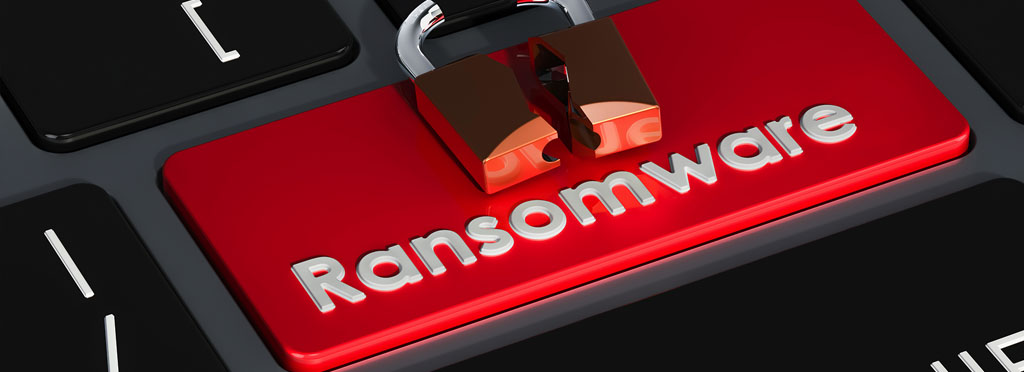
Ransomware attacks are on the rise. This probably isn’t a shock to you, but these numbers might leave you surprised. There were approximately 300 million ransomware attacks globally in 2020 alone.[1] As attacks increase, hackers are demanding even higher ransomware payments.
Projections estimate that the annual global cost of ransomware attacks will reach $20 billion by the end of this year.[2]
Ransomware-as-a-service makes it easier for criminals who aren’t tech-savvy to become threat actors. These aggressors vary from groups in the past because they are often unpredictable and don’t follow a code of ethics. For example, past attackers wouldn’t target organization such as cancer treatment facilities, but that’s not really the case anymore.
Any organization, regardless of size or industry, can fall victim to a ransomware attack. Unfortunately, SMBs are more vulnerable because cybercriminals rely on these businesses to lack the necessary resources to fight cybercrime or the IT teams to routinely check their cybersecurity measures. While SMBs continue to receive the brunt of these criminal attacks, reports and notifications hardly make the news unless a large corporation experiences an attack.
Remember, it’s not a matter of IF your business will be attacked, it’s a matter of WHEN. Ransomware attacks hit businesses every 11 seconds2. It’s important to note that using the right security solutions and having the correct measures in place can prevent your business from experiencing a devasting breach. But, there are a few tips you should know if you experience a ransomware attack:
Before Responding to a Ransomware Attack, Remember Three Things
1. The FBI doesn’t advise anyone to pay a ransom. Paying a ransom doesn’t guarantee that the hackers will release the keys to decrypt your data. Even though the FBI is an American organization, their points are valid for businesses around the world.
It isn’t logical to trust cybercriminals who have already shown they aren’t afraid to break the law and try to manipulate you for financial gain. However, so many businesses end up in these situations because they don’t have adequate security, backup or compliance measures, and desperate to regain their data.
Don’t forget that the FBI also advises against meeting ransomware demands because it encourages criminals to continue attacking other businesses. If businesses didn’t pay ransom, it’s possible there wouldn’t be as many ransomware attacks. That means criminals would have to find new methods to make money and disregard ransomware as an option.
“Ransomware Negotiators” are available for hire should you fall prey to a ransomware attack and have no choice except to pay the attackers.
When it comes to ransomware negotiations, the most critical moments occur before the victim and hackers ever discuss ransom. By the time both parties begin discussions, hackers already have control over the victim’s network by encrypting access to confidential business information and their other digital assets. Hackers’ negotiation power becomes greater based on how much data they’ve encrypted.
Before you begin negotiations, you should know how much data was compromised and take note of the negotiation methods utilized in the past by those criminals. Professional ransomware negotiators are particularly helpful for this stage. While ransomware negotiation hardly results in a demand being completely withdrawn, it can significantly reduce the hackers’ asking price.
If you’re a victim of ransomware, you can expect the following:
- Your data will not be erased in a safe way. It could be sold, mishandled, or stored for extortion attempts in the future.
- Multiple parties have handled your data, making it insecure. Even if a large portion of your data is deleted after the ransom is paid, the remaining parties who had prior access may have duplicated your data so they can request ransom payments again.
- Stolen data may be leaked intentionally or unintentionally before you can even respond to an extortion attempt.
- Threat actors may not keep their word when they promise to release your encrypted data after you pay them.
Don’t Wait to Make Your Move
Are you wondering, “what steps should I take to prevent ransomware from targeting our systems?” We strongly encourage and recommend layered security.
No security measure or technology is perfect or guaranteed, but layered security assumes attackers will invade different layers of your business’s defense or has already done so. The purpose of this method is to provide numerous security measures so if an attacker get past one security tool, there are still other safeguards in place to help identify and kill the attack before your data is taken.
If the thought of protecting your organization sounds overwhelming, don’t worry. You don’t have to handle cybersecurity by yourself. Team up with an experienced partner like us, so we can do the heavy lifting for you. With our expertise and knowledge in cybersecurity, we can help you build a more secure future. Contact TechSeven Partners for a consultation to get started!
[1] Statista
[2] Cybersecurity Ventures
